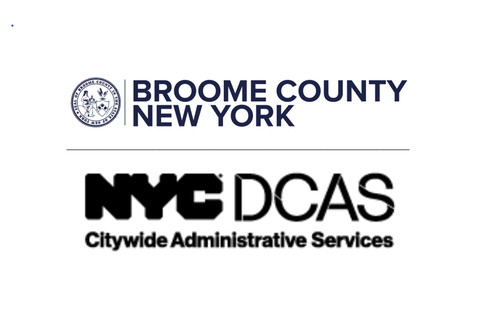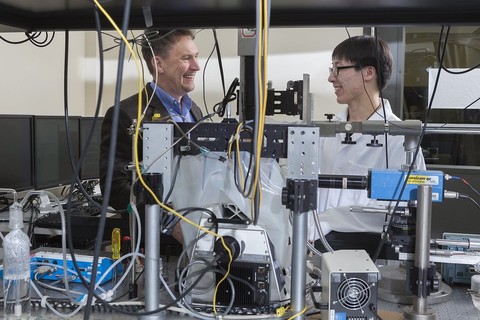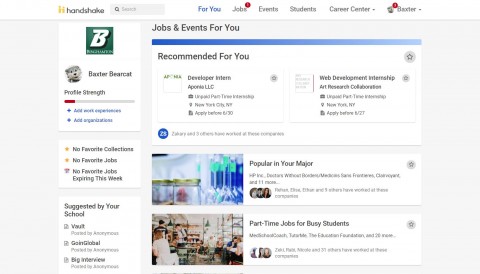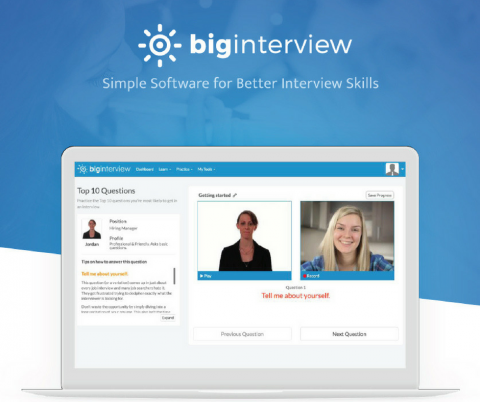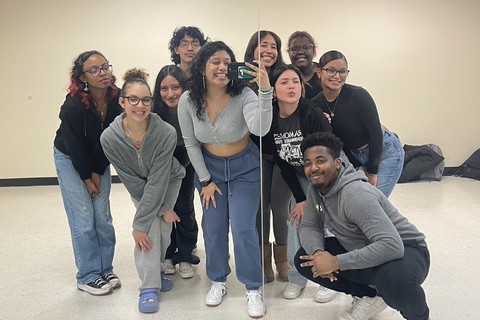We Offer Career Counseling Sessions to Graduate Students.
You can make appointments with our graduate student career counselor Ozzy Girit Heck through Handshake.
https://binghamton.joinhandshake.com/edu
Email: ogirithe@binghamton.edu or call: 607-777-2982
Career and Professional Development Timeline for Graduate Students
-
Early – Take the time in your first year to complete these career and professional development activities
Know Yourself & Explore Options
- Explore your interests, values, and skills
- Identify the skills you need to get the job you want
- Make an appointment with a career consultant to do a self-assessment of your strengths, interests, and personality
- Explore career options through informational interviews and shadowing employers and alumni
Take Action
- Develop a career plan using myIDP (Science), or ImaginePhD (Humanities and Social Sciences)
- Meet and network with graduate students and faculty in your department
- Attend workshops on networking skills and the job search
- Attend career planning workshops hosted by the Fleishman Center, GCOS, and the GSO
- Update your resume/CV and LinkedIn profile on a regular basis
-
Middle – Explore career and professional development opportunities
Get Focused
- Take on a leadership role relevant to your interests (i.e. mentorship, graduate student organizations, etc.)
- Expand your skills and experiences though departmental committees or volunteer opportunities
- Create an elevator pitch about your research and experience to use at conferences and at networking events
Take Action
- Choose volunteer work, a research position, or teaching assistant opportunities to gain experience relevant to your career goals
- Find job and internship opportunities through hireBING by Handshake
- Attend conferences or professional development events in your field
- Build your professional brand and expand your network by creating a LinkedIn profile and connecting with alumni
- Get feedback on your CV at the Fleishman Center during walk-in hours or by scheduling an appointment through hireBING
-
Near Completion – Prepare for the transition into the workforce by engaging in career and professional development tasks
Connect
- Take advantage of career development resources offered through professional organizations (i.e. training, services) and scholarly and professional conferences (i.e. workshops, networking events)
- Familiarize yourself with resources such as ImaginePhD, The Chronicle of Higher Education, and insidehighered.com which provide career advice to students pursuing a diverse range of careers outside of academia
Take Action
- Attend the Job & Internship Fairs and employer information sessions to connect with recruiters
- Inform network contacts that you’re actively looking for a job and secure references
- Make use of websites, job boards, and hireBING to apply for positions
- Tailor your resume/CV and cover letter to jobs that interest you
- Attend workshops offered by GCOS that offer insight into both the faculty job search as well as diverse career options
The Job Search for Graduate Students
Searching for a job entails much more than simply clicking an “apply” button. By researching each employer and making thoughtful connections between the employer’s needs and what you, as a candidate, have to offer, you will make yourself a much more attractive candidate.
The Fleishman Center can help you develop a successful job or internship search strategy. Our Career Consultants are available to provide feedback on CVs, resumes and cover letters; conduct mock interviews; provide advice on creating a job search plan; and answer any career-related questions.
-
Master’s-Level Job Search
If you conducted a job search at the conclusion of your undergraduate degree, you will see many similarities in the process at the master’s level. Employers still want to see many of the same things they did from bachelor’s-level candidates: strong academics, relevant skills and experiences, and targeted documents that convey your fit with the position and strong interest in their organization. The differences may lie in how much experience and depth of knowledge is expected from a master’s candidate.
-
PhD-Level Job Search: AcademicIt’s no secret that faculty-track positions are highly competitive. You will need to put together a comprehensive search campaign, including deciding on where, and to which types of positions, to apply, building your network, securing letters of recommendation, writing a strong CV, and developing an excellent one-hour job talk. Start cultivating your network as early as possible by actively making faculty contacts at Binghamton and other institutions. Attend professional association meetings and professional conferences, and if possible, present at or chair a session. This will build both your CV and your network. Teaching and research will be critical components of your application, so actively seek out teaching and publishing opportunities.
-
PhD-Level Job Search: Non-Academic
There are several things to think about when considering and embarking upon a non-academic search. First, it is important to take time to reflect on your interests and how the skills you developed in your doctoral program might translate into non-faculty roles. PhDs work in nearly every industry, so it can help to speak with professionals who work outside of academia to learn about their experiences, get advice, and begin building a professional network; the Fleishman Center recommends LinkedIn for identifying potential contacts. It is also important to spend time learning how the non-academic job search is structured, and the differences in expectations, timelines and application documents. The Fleishman Center can help you understand and navigate these differences, through one-on-one appointments, programs and resources.
-
Job Search for International StudentsThe Fleishman Center has compiled a variety of information and resources to help international students navigate the United States job search process. Learn more about the United States employment process, common cultural barriers faced by international students, immigration and legal processes, and more here.
RESOURCES FOR Ph.D. STUDENTS
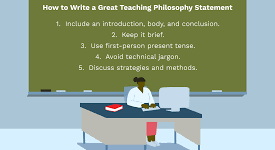
Writing a Teaching Philosophy for the Academic Job Market
Your teaching philosophy is a self-reflective statement of your beliefs about teaching and learning. It’s a one to two page narrative that conveys your core ideas about being an effective teacher in the context of your discipline. It develops these ideas with specific, concrete examples of what the teacher and learners will do to achieve those goals. Importantly, your teaching philosophy statement also explains why you choose these options (University of Minnesota, 2022).
Here are a few resources that can help you create your own teaching philosophy.
Writing Your Teaching Philosophy-University of Minnesota
Teaching Philosophy Statement-Cornell University
Writing a Teaching Philosophy-Washington University in Saint Louis
Writing a Research Statement for Faculty Job Applications
The research statement (or statement of research interests) is a common component of academic job applications. It is a summary of your research accomplishments, current work, and future direction and potential of your work.
The statement can discuss specific issues such as:
- funding history and potential
- requirements for laboratory equipment and space and other resources
- potential research and industrial collaborations
- how your research contributes to your field
- future direction of your research (Cornell University, 2022)
Here are a few resources that you can use to write your own research statement:
Research Statement-Cornell University

Graduate Community of Scholars (GCOS)
GCOS at Binghamton University offers resources to help you thrive in your personal life and gain a competitive edge in your professional life – whether you’re starting your master’s degree or completing your doctoral degree.
Each semester, GCOS hosts a series of workshops designed to develop the graduate community as scholars, teachers, professionals and members of the Binghamton University community.

ImaginePhD
ImaginePhD is a free online career exploration and planning tool for PhD students and postdoctoral scholars in the humanities and social sciences. Imagine PhD users can:
- assess their career-related skills, interests, and values
- explore careers paths appropriate to their disciplines
- create self-defined goals
- map out next steps for career and professional development success
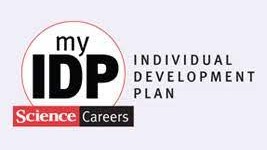
myIDP
myIDP is a unique, web-based career-planning tool tailored to meet the needs of PhD students and postdocs in the sciences. myIDP provides:
- Exercises to help you examine your skills, interests, and values
- A list of 20 scientific career paths with a prediction of which ones best fit your skills and interests
- A tool for setting strategic goals for the coming year, with optional reminders to keep you on track
- Articles and resources to guide you through the process

Graduate Career Consortium (GCC)
Graduate Career Consortium (GCC) is an international organization comprised of higher education professionals leading career and professional development for graduate students and postdocs since 1987. As a unique community of practitioner scholars and teachers, the GCC’s role is to connect and support our members while also raising the awareness of their contributions to the field.
HIGHER EDUCATION RESOURCES

Inside Higher Ed provides News, Jobs, Career Advice and Events for college and university faculty, adjuncts, graduate students, and administrators. You can search for more than 34,000 faculty and administrative jobs in higher education as well as get career advice. Browse for jobs.

Chronicle of Higher Education
Chronicle of Higher Education is a leader in higher education journalism and research, providing insights, tools, knowledge and career opportunities in the field of higher education. Students can search for jobs and relevant information in higher education on their website.

HigherEdJobs
HigherEdJobs is the leading source for jobs and career information in academia. They provide students with job search, resources, and news in higher education.
NETWORKING RESOURCES FOR GRADUATE STUDENTS

Academia.edu
Academia.edu is a platform for sharing academic research. Academics have uploaded 40 million papers, and 93 million academics, professionals, and students read papers on Academia every month. You can share your published or works in progress with other researchers and get feedback.

ResearchGate
ResearchGate is a site where scientists can connect, collaborate and share their work. Their mission is to connect the world of science and make research open to all. You can also find research jobs on their site.

Professional networking is a critical tool for career success, and LinkedIn is the premier tool for making connections. Learn more about using LinkedIn for career success.
TEACHING RESOURCES
Yale Poorvu Center for Teaching and Learning
Yale’s Poorvu Center for Teaching and Learning provides strategies for teaching and instructional tools that may be helpful for new faculty.
Center for Learning and Teaching
Binghamton University’s Center for Learning and Teaching promotes and supports excellence in student-centered learning for all members of the Binghamton University community. They provide supported technology, instructional design services, and educational support for faculty, students, and staff.
PROFESSIONAL DEVELOPMENT RESOURCES
GRADUATE SCHOOL
The Graduate School, in partnership with other Binghamton University resources, has put together a series of workshops and programs to enhance and help students articulate these skills, as well as promote personal well-being. Students who are at different stages of their graduate program can check these workshops and programs and consider what skills, training, and resources they need to be successful in each stage. Professional Development at the Graduate School

Graduate Community of Scholars (GCOS)
GCOS at Binghamton University offers resources to help you thrive in your personal life and gain a competitive edge in your professional life – whether you’re starting your master’s degree or completing your doctoral degree.
Each semester, GCOS hosts a series of workshops designed to develop the graduate community as scholars, teachers, professionals and members of the Binghamton University community.
Opportunity Alert!
Attention electrical engineering students! Are you in search of a summer 2024 internship? Want to spend your summer on Long Island? Keep reading to find out more!
Basaran Grinder Corporation is hiring for an automation/electronics intern at their …
If you are planning to stay in Broome County for the summer, there are a wide array of internships available for various focus areas within our local government system, such as Parks and Recreation, Human Services, Marketing, Health, Science, Engineering, …
Science and engineering are fields that not only offer intellectual challenges but also the chance to make groundbreaking discoveries and innovations. For students, recent graduates, and early-career professionals, there are science and engineering positions that combine prestige, excitement, and the …
Christopher Woloshyn is an example of how to make the most of your time ant Binghamton University. Read about Christopher’s time as a Residental Assistant (RA) and how he double majored in Mathematics and Cinema!
Major(s) at Binghamton University: MS …

